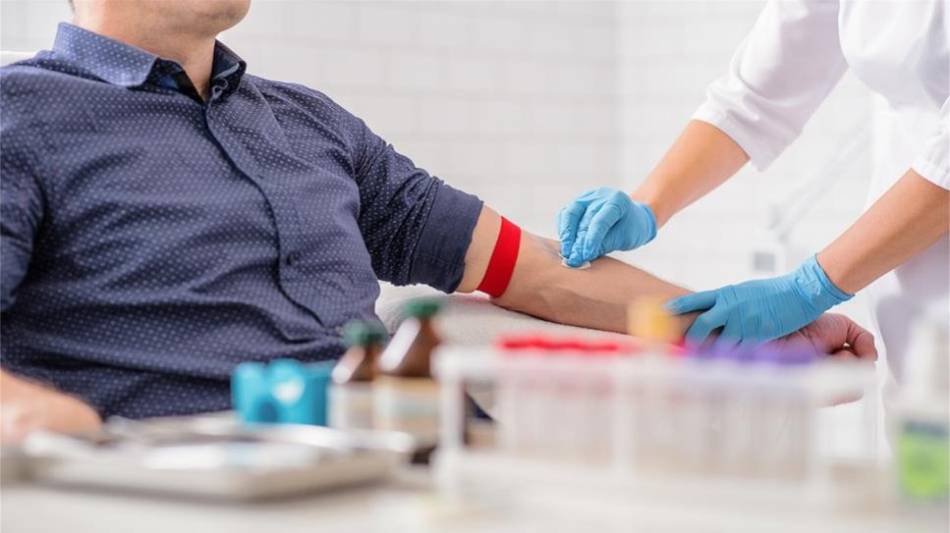Answer:
There are a number of supplements that may interfere with blood, urine or stool tests, and even certain imaging tests. This can cause misleading results or lead to unnecessary additional testing or treatment.
More specifically, supplements can affect:
- Thyroid and other hormone tests
- Vitamin D and calcium tests
- Prostate specific-antigen (PSA) tests
- Tests for hepatitis B and hepatitis C
- Tests of kidney function (blood levels of creatinine)
- Tests for glucose, bilirubin, hemoglobin, calcium, chloride, and magnesium
- Certain COVID-19 tests
- Troponin tests used to help diagnose heart attacks
- Hydroxyproline tests (for osteoporosis and other bone diseases)
- Bone density scans
- MRIs (magnetic resonance imaging)
- Certain stool tests that may be used to screen for colon cancer and gastrointestinal bleeding
- Pregnancy (hCG) tests
- Anti-doping tests for athletes
The supplements that can cause these interactions include B vitamins such as biotin, niacin and riboflavin, as well as calcium supplements, creatine, iron supplements, L-arginine, St. John’s wort, vitamin C, L-tryptophan, and 5-HTP, as well as certain foods and drinks. High-dose N-acetyl cysteine (NAC) may also interfere with certain tests, although this may depend on how it is administered.
Sign in as a member to learn which vitamins and supplements interfere with which tests, when to stop taking these supplements before tests to avoid interference.
Be sure to tell your physician and laboratory about all the supplements you take, as interference may vary depending on the exact model of test used and can change when tests are updated or reformulated.
+
— 35 sources
In addition the results of its expert testing, ConsumerLab uses only high-quality,
evidence based, information sources. These sources include peer-reviewed studies
and information from agencies such as the FDA and USDA, and the National Academy of Medicine.
On evolving topics, studies from pre-print journals may be sourced.
All of our content is reviewed by medical doctors and doctoral-level experts in pharmacology,
toxicology, and chemistry. We continually update and medically review our information to
keep our content trustworthy, accurate, and reliable.
The following sources are referenced in this article:
- AACC Guidance Document 2022
- American Bone Health 2022
- Anderson, Am J Gastroenterol 1990
- Bayart, Clin Chim Acta 2020
- Beckman Coulter Instructions for Use 2015
- Brittenham, Am J Clin Nutr 2014
- Burks, AACE Clin Case Rep 2016
- Carcinoid Cancer Foundation Accessed 2022
- Charles, Nutrition 2019
- Cook, J Magn Reson Imaging 2006
- Eastell, Treament of Postmenopausal Woman 2007
- Gabaj, Annals of Clinical Biochemistry 2020
- Genzen, Clin Biochem 2016
- Ghosh, Ann Clin Lab Sci 2022
- Gopalakrishnan, Endocrine Abstracts 2025
- Green, Cureus 2018
- Hallin, Ann Clin Biochem 2013
- Hwang, Cureus 2025
- Kendler, J Clin Densitom 2006
- Konrad, Can Fam Physician 2012
- Krueger, J Clin Densitom 2006
- Lee, J Clin Lab Anal 2017
- Loudas, Am J Case Rep 2019
- Persky, Creatine and Creatine Kinase in Health and Disease 2007
- Pline, Ann Pharmacother 2005
- Poortmans, Med Sci Sports Exerc 1999
- Preshaw, CMAJ 2008
- Rex, Am J Gastroenterol 2009
- Samuels, Cureus 2024
- Schümann, Ann Nutr Metab 2012
- Shiozaki, SCMR 2024
- Stieglitz, J Endocr Soc 2018
- Unic, J Clin Lab Anal 2018
- Warner, Interpreting Laboratory Tests 2012
- Williamson, BMJ Case Rep 2014







Submit your comment
This feature is restricted to active members.
Join now to add comments and get all member benefits, including over 1,400 reviews.
Join NowAlready a member? Sign in here.